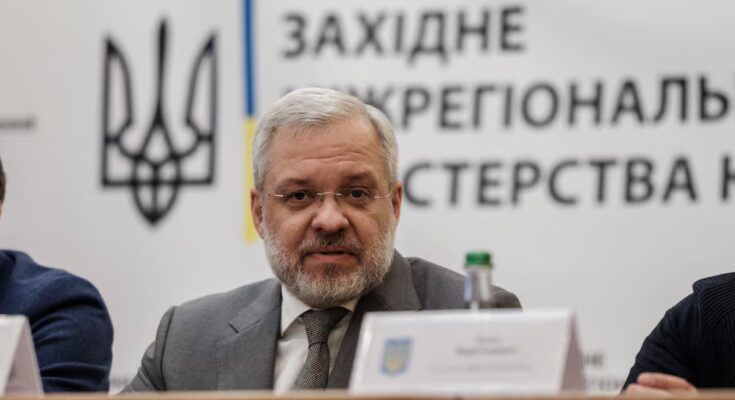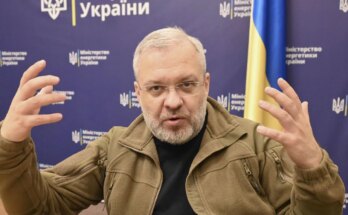The alleged corruption case of the state company Energoatom has shaken Ukrainian society and decisions to calm popular unrest may not take long. The dismissal of the current Minister of Justice – and before that of Energy – German Galushchenko, was announced on Wednesday after an emergency council of ministers. Prime Minister Yulia Sviridenko announced that Galushchenko, one of the government’s most senior politicians, will be temporarily removed from office, pending the conclusion of investigations conducted by the Anti-Corruption Prosecutor’s Office.
Last Monday the National Anti-Corruption Bureau (NABU) searched the home of Galushchenko and other senior government officials and Energoatom, the company that manages Ukraine’s nuclear power plants. Galushchenko was Energy Minister until last July. At the moment there are five detainees (none of them are the minister) and two suspects who escaped, leaving the country a few hours before the searches were carried out. One of these fugitives is the most politically compromising face of the case: Timur Mindich, a friend of President Volodymyr Zelenskyj and his partner in the audiovisual production company Kvartal 95.
NABU and the Anti-Corruption Prosecutor’s Office (SAPO) presented more than 100 hours of recordings that would indicate that Mindich was the intermediary between private companies and Energoatom executives to give or withdraw contracts in exchange for commissions ranging between 10% and 15%. Anti-corruption bodies estimate that the fraud exceeds 86 million euros.
Mindich, according to NABU reports, used his direct contacts in the government and at the highest levels in the country to coordinate this network of frauds on public coffers. Sviridenko also announced the dismissal of the board of directors of the state company Energoatom.
Ukrainian cities will experience power outages of up to 14 hours this November. Russian attacks on Ukraine’s energy system have left electricity generation capacity at a minimum, largely dependent on remaining active nuclear power plants. In this context, the Energoatom scandal has caused great agitation and led the main opposition party, European Solidarity, to announce that it will present a motion to Parliament calling for the resignation of the entire Government.
“When millions of Ukrainians were left without electricity during the bombing, when the best among us die every day at the front, another team operated in the rear, the one that lined the pockets of elected officials,” European Solidarity, a party led by former president Petro Poroshenko, said in a statement.
critical voices
The Servant of the People Party, Zelenskyj’s party, holds an absolute majority in parliament, but critical voices have emerged from its ranks, aware of the difficult situation they find themselves in. The chairwoman of the Anti-Corruption Committee of the Rada – the Ukrainian legislative chamber -, Servant of the People MP Anastasia Radina, called for Galushchenko to be completely removed from office.
The NABU investigation, code name Midasit is one of the most difficult moments for Zelenskyj’s leadership. “The political tsunami has just begun, because it hits the circle closest to the president and shows how his vertical power within the state works,” he said on Tuesday in Expressed Daria Kaleniuk, director of the Anti-Corruption Center, a leading NGO investigating political fraud in Ukraine.
The case could further damage the Ukrainian power leadership because the Anti-Corruption Prosecutor’s Office is also investigating whether Mindich rigged Defense Ministry contracts with his former boss Rustem Umerov, one of the politicians closest to Zelensky. Umerov, current secretary of the National Security Council, has denied any wrongdoing.
The pressure cooker began to whistle last July, when Zelensky unexpectedly submitted to the Rada a law limiting the autonomy of the NABU and the Anti-Corruption Prosecutor’s Office. The bill places both anti-corruption bodies under the decision of the Prosecutor General, a position appointed by Zelensky.
The president withdrew the initiative after receiving a barrage of criticism from the European Union and after the first demonstrations on the streets of Ukraine in nearly four years of war. It was leaked to the Ukrainian media at that time from NABU and SAPO that Zelensky’s proposed legal reform included the suspension of his investigation into Mindich.



